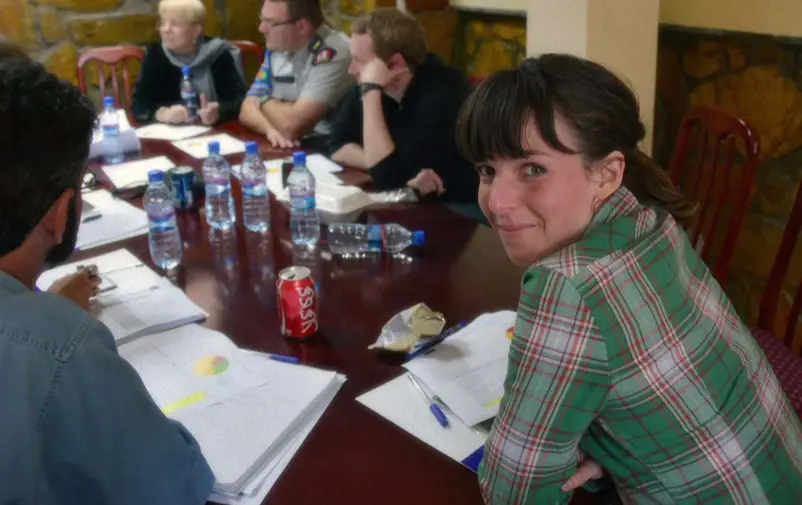
The 1325 Scholarship was established in memory of gender equality expert and peacebuilder Zaida Catalán.
Freedom is the founder of the Zimbabwean civil society organisation MOTSRUD (Management Outreach Training Services for Rural and Urban Development), and serves as a board member at the Zimbabwe Peace and Security Programme (ZPSP). She is also a poet and an ex-combatant from Zimbabwe’s war for independence.
– I applied because I wanted to obtain more knowledge and skills on SSR issues, while being able to network with and learn from other actors active within this area of work.
– The course has provided us with tools to apply in our respective contexts. There are many participants from the field here, which have given me the opportunity to learn from others and to establish new contacts. I also believe I had valuable experiences to share with the group as I am one of the few participants working with SSR permanently and in my own country.
– After my years as a combatant I needed to find a way to be useful again. This was why I created the MOSTRUD in the early 1980s. The aim was to provide assistance to resettlement for the many internally displaced people and refugees in Zimbabwe after the civil war. The initial aim of the organisation was therefore to assist with rehabilitation, reintegration and to provide training in agricultural skills.
– We work on SSR from a human security perspective in collaboration with universities and through trainings of security sector staff. I will bring many of the presented concepts and tools with me to our trainings in Zimbabwe. The success of SSR programmes in Africa is embedded in the ability to create a critical mass that understand and embrace good governance of public institutions, especially those that facilitate justice delivery to the poor men and women in the rural Africa.
– Writing for me is a commitment. Although I have always had a passion for writing it became a way for me to process my experiences as a combatant in the civil war. I write of the war since if I can’t write about the war no one will.
– Zimbabwe’s future is bright. Considering our dark past we can only move forward. A condition for progress is to enable for Zimbabweans to cultivate the land they possess and through that rise out of poverty.
Freedom’s first publication, “On the Road Again”, was the result of a good friend gathering her thrown away notes and convincing her that her writing mattered.
MORE FROM HOME
Are you a young peacebuilder at the beginning of your career with a strong commitment to women, peace and security? Do you have experience working in this field in the Democratic Republic of Congo or Afghanistan and want to take your commitment to the next level? Then you have the opportunity to apply for the 1325 scholarship for 2026.
2025-11-06 15:30FBA has both increased and adapted its work in Ukraine in the wake of Russia's invasion.
FBA in UkraineKlara Grenhagen works as a specialist at FBA's Africa unit with a focus on dialogue, reconciliation and peace processes.
More about our expertsFBA is part of Sweden’s development aid within the area of peace and security
Read more about the countries where we work